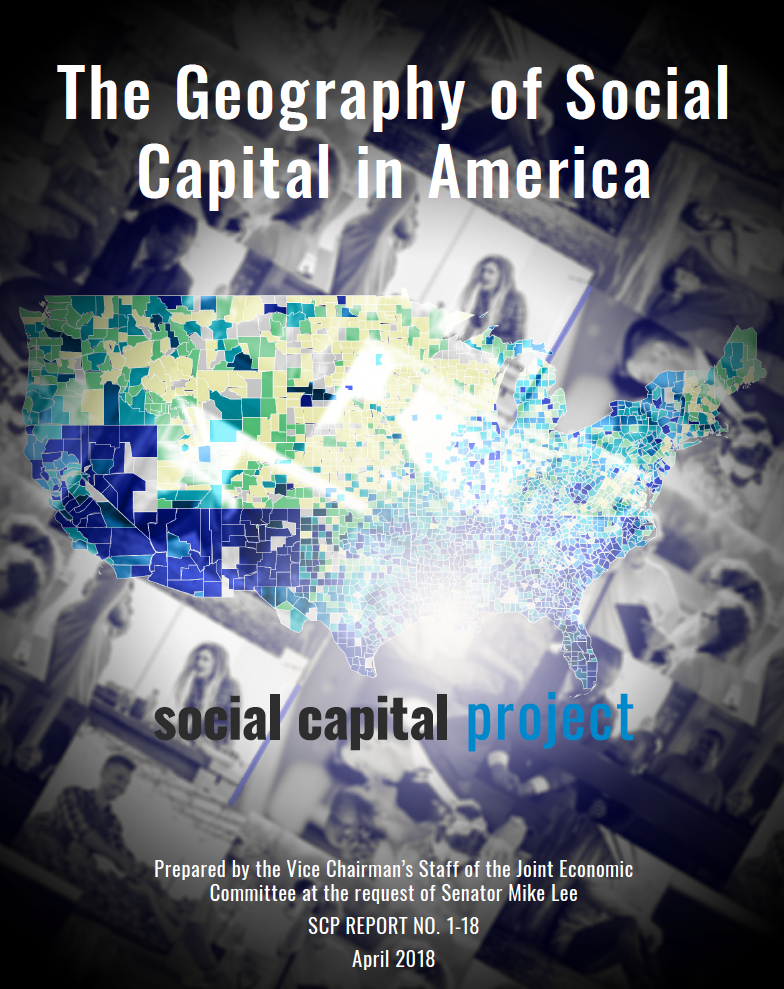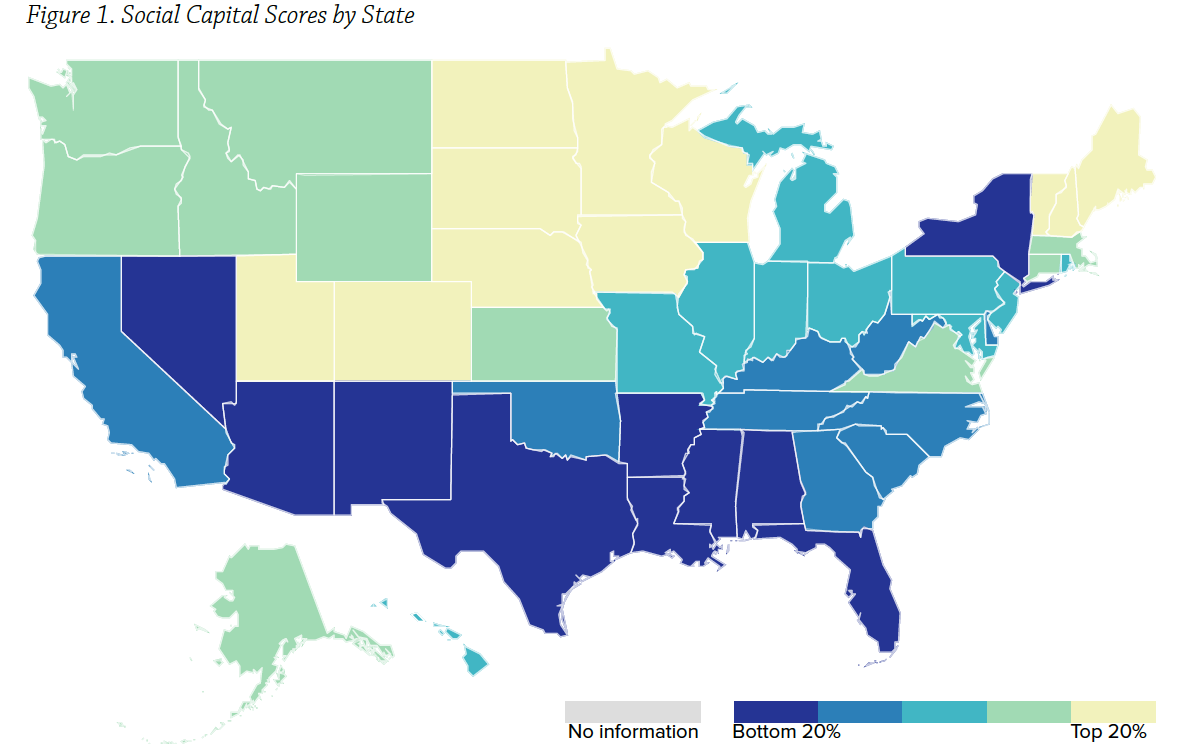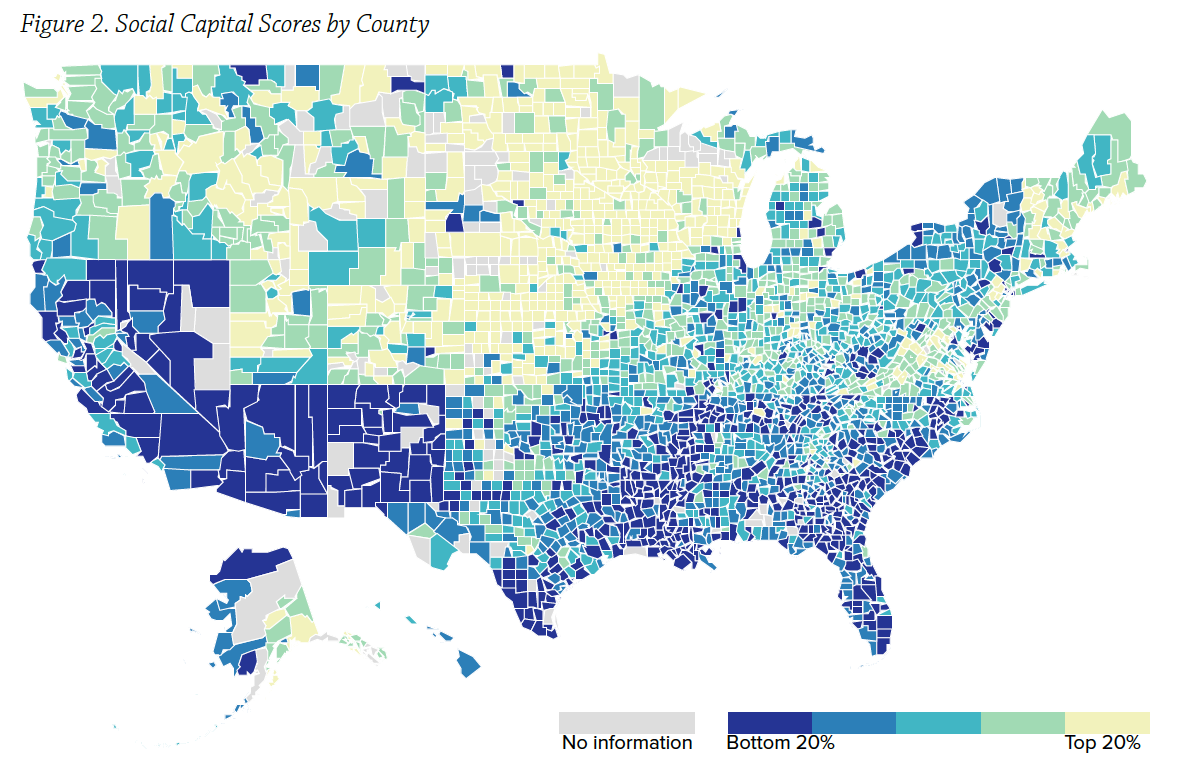 In recent decades, America has experienced a wave of economic and social disruption. In our search for solutions, however, we tend to look only at the surface, assessing the architecture of particular policies or stroking our chins over economic measurements like Gross Domestic Product.
In recent decades, America has experienced a wave of economic and social disruption. In our search for solutions, however, we tend to look only at the surface, assessing the architecture of particular policies or stroking our chins over economic measurements like Gross Domestic Product.
But what if we had a deeper view of the dynamics beneath the surface? What if we had way to measure, assess, and observe the state of “associational life” in America (as Alexis de Tocqueville may have called it)? What if we could observe what’s really happening (or not happening) in those middle layers of society, from families to churches to charities to entrepreneurial activities?
In “The Geography of Social Capital in America,” a new report from Sen. Mike Lee’s Social Capital Project, we get snapshot of precisely this, including a range of regional data to help us more fruitfully observe and assess the space between the individual and State.
“Today’s debates are often hindered by the imbalance between well-measured economic variables such as GDP and less well-measured social, cultural, and psychological ones,” the report explains. “…Economic factors and outcomes are important, but if we neglect the health of our associational life, we will misdiagnose the causes of many problems and tend to focus on economic priorities over social ones.”
To create the index, researchers gathered county- and state-level data on a variety of indicators across social, economic and demographic areas, focusing specifically on “family structure and stability, family interaction and investment, civil society, trust and confidence in institutions, community cohesion, institutions, volunteerism, and social organization.”
The results paint an interesting geographic portrait of the country, as illustrated in the following map, which notes index rankings. Utah, Minnesota, and Wisconsin are in the top three; Louisiana, Nevada, and Arizona are at the bottom. You can view interactive data and rankings here.
The picture of county-level data is also interesting:
As for any immediate conclusions or takeaways, one of the most striking comes from the obvious geographic clusters. “Social capital is markedly unequally distributed across the United States,” the study concludes. “A clear ‘north-south’ divide is apparent, and the clustering of states into similar contiguous blocs suggests that geographic differences may have deep-seated roots in historical immigration and internal migration patterns, regional culture, and perhaps even features of climate and topography.”
Although other such studies have been conducted in the past — perhaps most notably, Robert Putnam’s Penn State index used in Bowling Alone — this latest effort is uniquely strong in the depth and quality of its data and the precision of its conception and definition of “social capital.”
The report offers more of a starting point than anything, helping to build a foundation for further exploration and analysis. The report raises plenty of new and interesting questions, whether on the correlation between religious participation and social capital, the “crowding out” of religious activism by “secular sources” of social capital,” or the complex drivers behind certain regional trends.
The challenges of social and economic disruption will continue, but in gaining a better understanding of the state of social capital in America, various leaders, economists, researchers, and policymakers will hopefully begin to see beyond the more temporal measurements and analyses. As for the rest of us, we can more steadily set our sights on what repairs are needed in the here and now, whether in our families, churches, neighborhoods, or workplaces.



